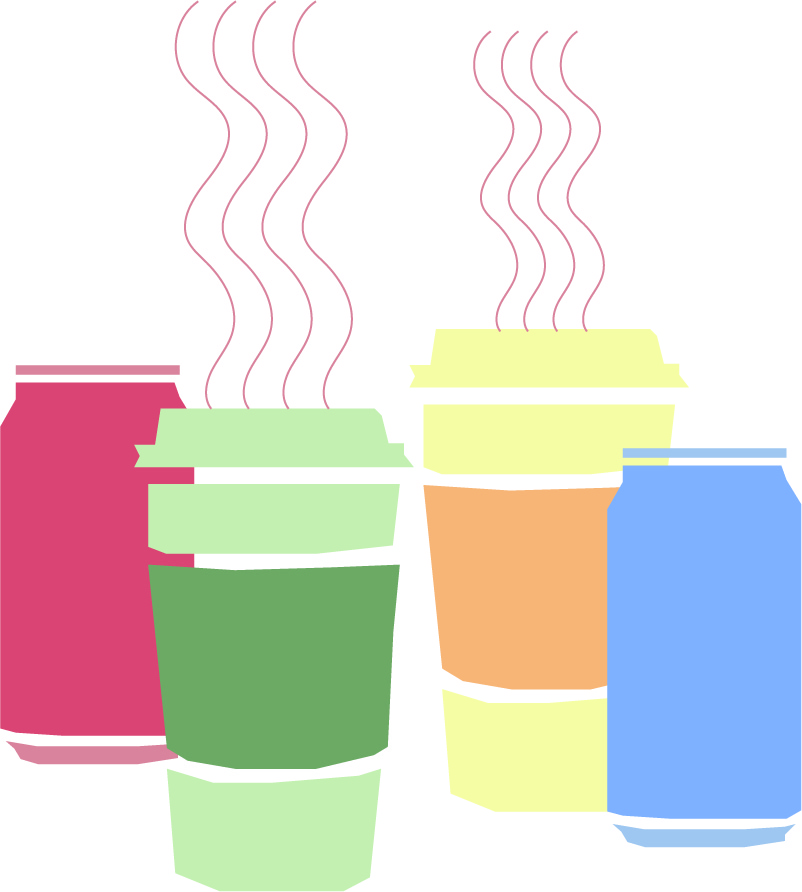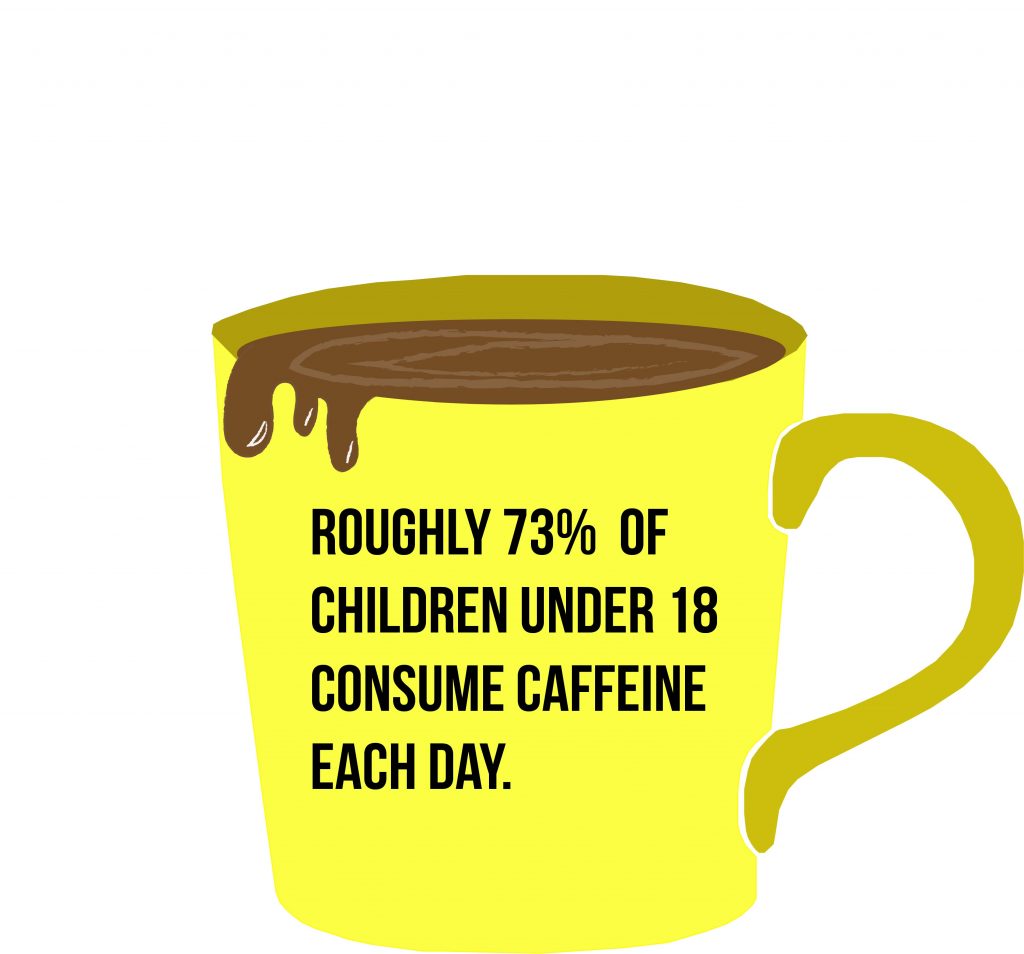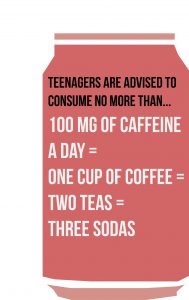Coffee, energy drinks, soda and other caffeinated beverages are widely available and consumed by students. Adolescents should consider the health impacts of high caffeine intake levels. Illustration by Audrey Kennedy
Teenagers often turn to excessive amounts of coffee, tea and energy drinks to cope with workload or exhaustion, disregarding the possible effects that high levels of caffeine may entail.
The student stares, crouched over the computer, dozing in and out of sleep. In order to complete the assignment on time, there is seemingly only one option — they reach over, grasp their third coffee of the night, and drink.
In the face of exhaustion and deadlines, many adolescents struggle to fulfill expectations at school, work or home. Managing to stay awake and productive seems simple with easy access to caffeinated drinks, but at such high intake levels, the healthiness of this solution is questionable.
According to a survey conducted by the American Academy of Pediatrics in 2014, roughly 73% of children under 18 consume caffeine each day.
Derived from the seed and leaves of up to 60 different plants around the world, caffeine is a naturally occurring drug that is commonly added to beverages. According to the National Sleep Foundation, when caffeine is consumed, it stimulates the nervous system and increases heart rate, causing alertness and energy.
It is advised for teenagers to consume no more than 100 mg of caffeine a day, which is equivalent to about one cup of coffee, two teas or three sodas, according to a study conducted by Michigan Health. When this cap is exceeded, there are a variety of possible side effects, including anxiety, increased blood pressure, insomnia, digestive issues and more.
Despite these results, the school continues to restock vending machines with caffeinated drinks and many students continue to rely on these everyday beverages for function.
Clarke Central High School junior Reece Dale has been drinking coffee since middle school. Dale believes that, over time, she has developed a dependence on caffeine for her day-to-day life.
“I try to get like three to four cups of coffee in a day. (If I don’t drink coffee) it’s bad. I get really horrible migraines or headaches, sometimes I get nauseous,” Dale said.
According to Dale, there is a cycle that she, as well as her peers, have fallen into in order to manage everyday demands.
“(Consuming large amounts of caffeine) definitely is something a lot of (students) do, especially during the school year. I’m up so late doing my homework, and I need to function in the morning, so when I wake up I drink coffee,” Dale said. “It’s become like a coping mechanism for me almost. If I feel bad or I don’t feel great, I’ll have a cup of coffee instead of getting to the root of the problem.”
While overconsumption of caffeine does prove to be an issue, there are many present benefits to this naturally-occurring substance. Temporary effects such as enhanced alertness, focus and energy may help students efficiently fulfill academic and extracurricular expectations, such as completing assignments, absorbing information in class and taking on after-school obligations.
According to a study by Harvard Health Publishing, long-term advantages of caffeine include lower risk of degenerative diseases, including Parkinson’s disease, Alzheimer’s disease and many different types of cancers.
However, these benefits are only present when other elements are addressed, such as hydration level, time of caffeine consumption and amount of consumption.
Ultimately, both students and schools have a responsibility to promote student health. It is not healthy for schools to enforce expectations and promote workloads that students struggle to reach without assistance from a mood and energy-enhancing substance. In addition, students should inform themselves about the health effects of caffeine intake.
As the year progresses and these habits become prevalent, it is vital for schools to discourage large amounts of consumption of caffeine through informing the student population of its effects, encouraging time management and limiting the supply offered to students in vending machines on campus.


